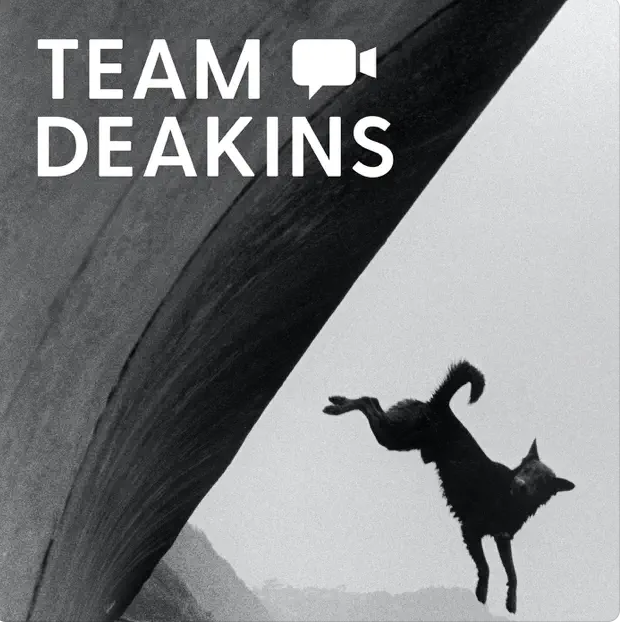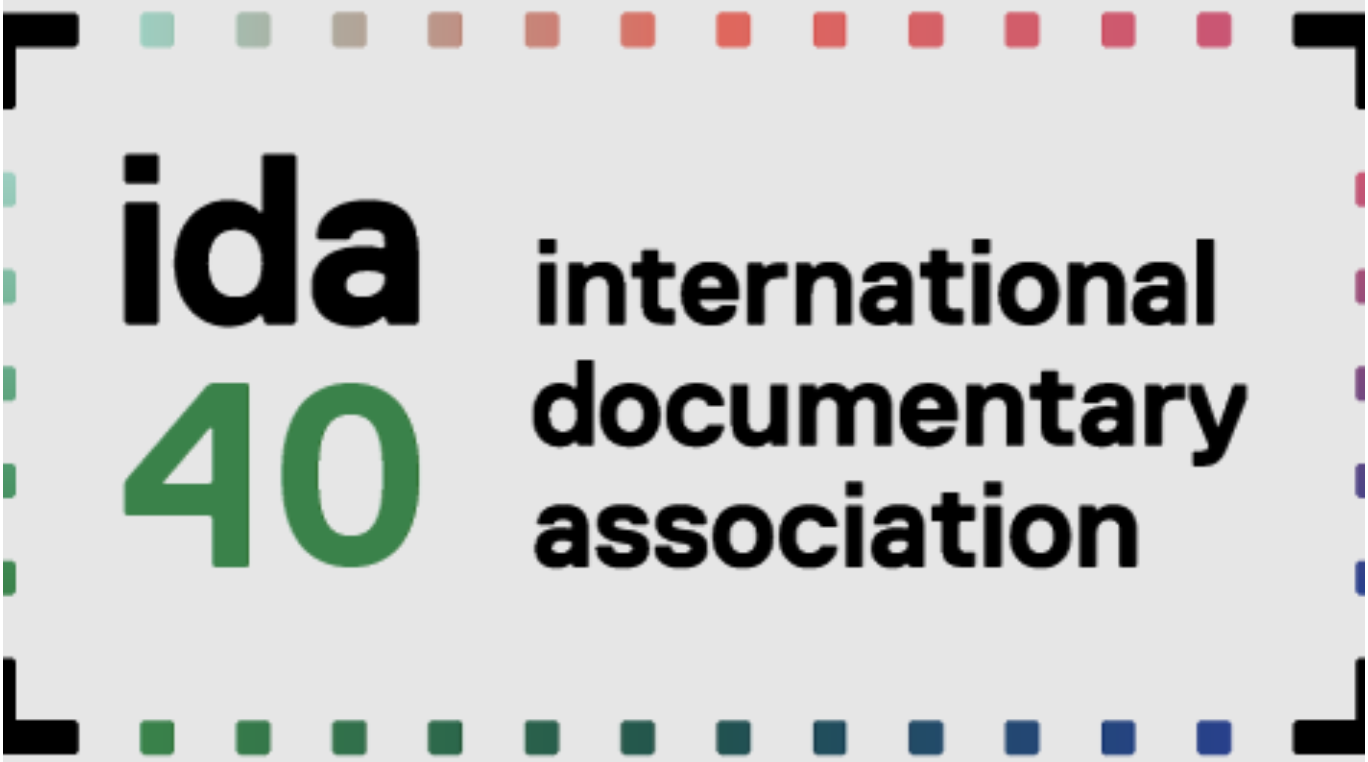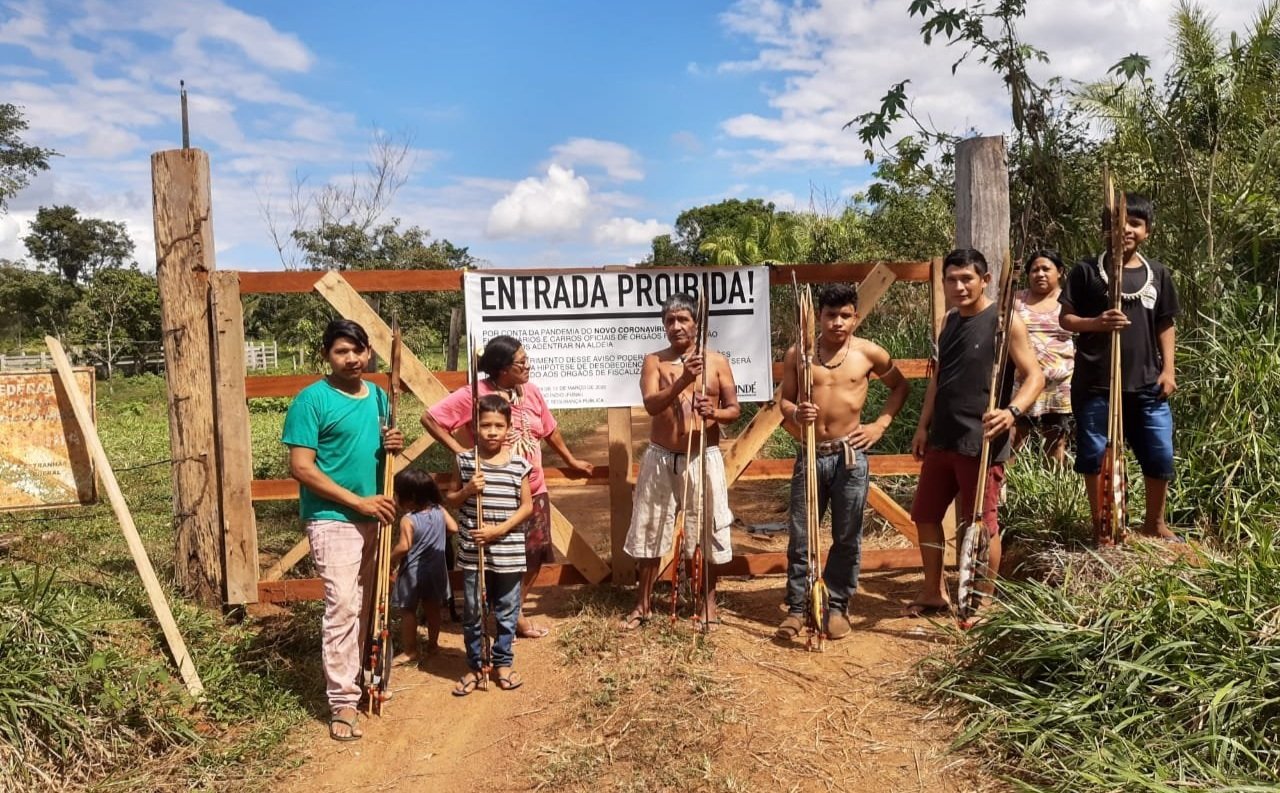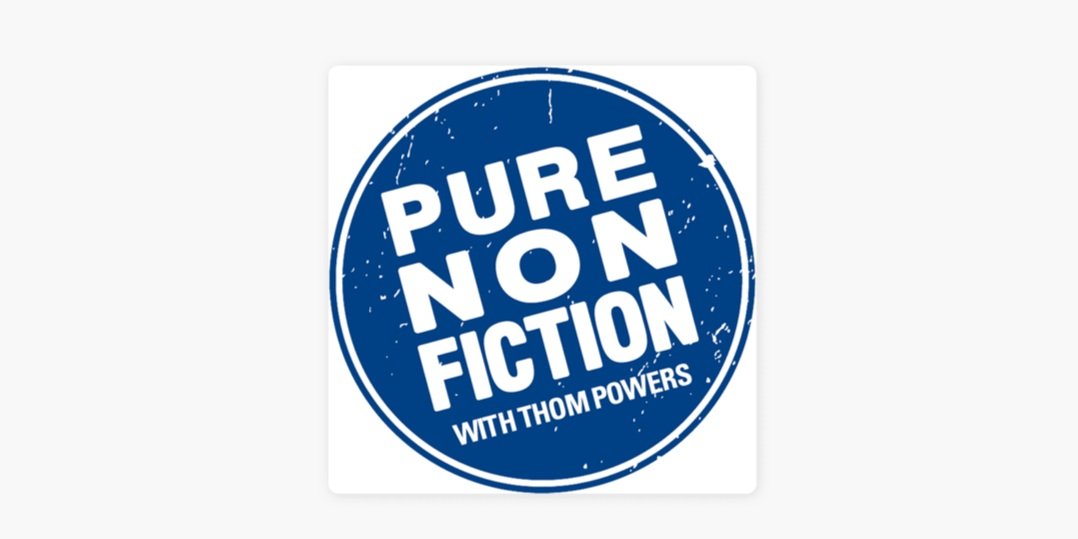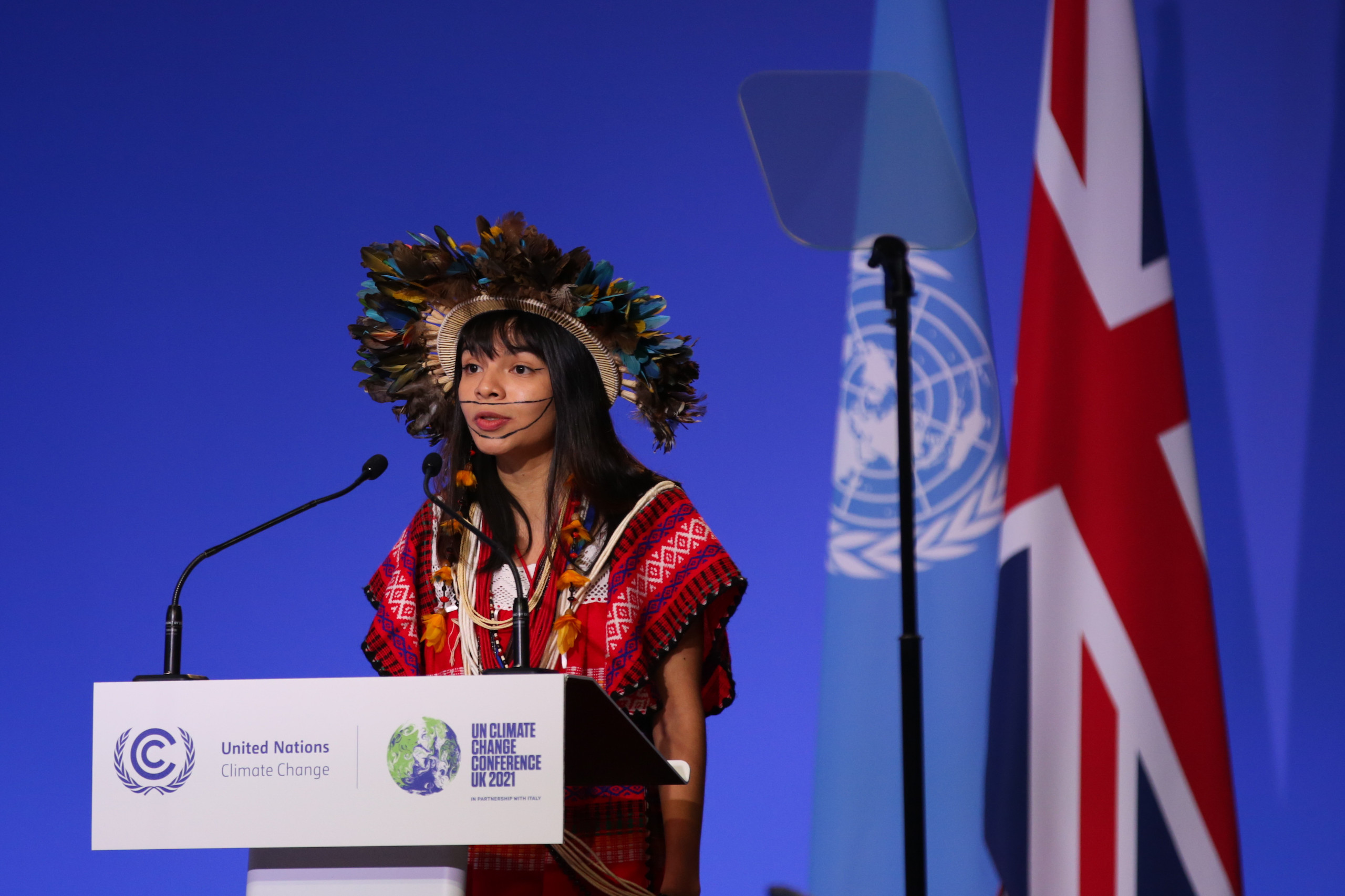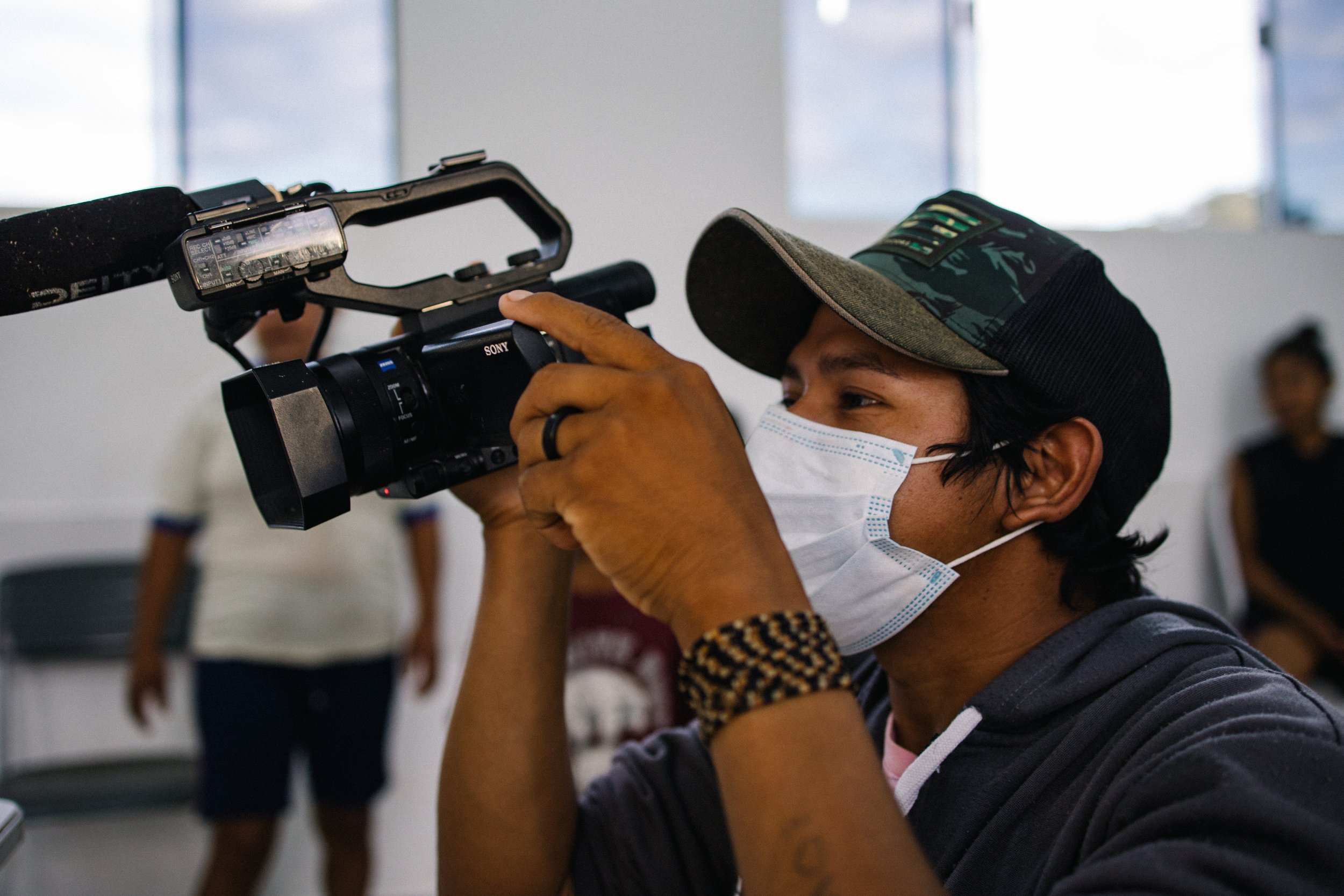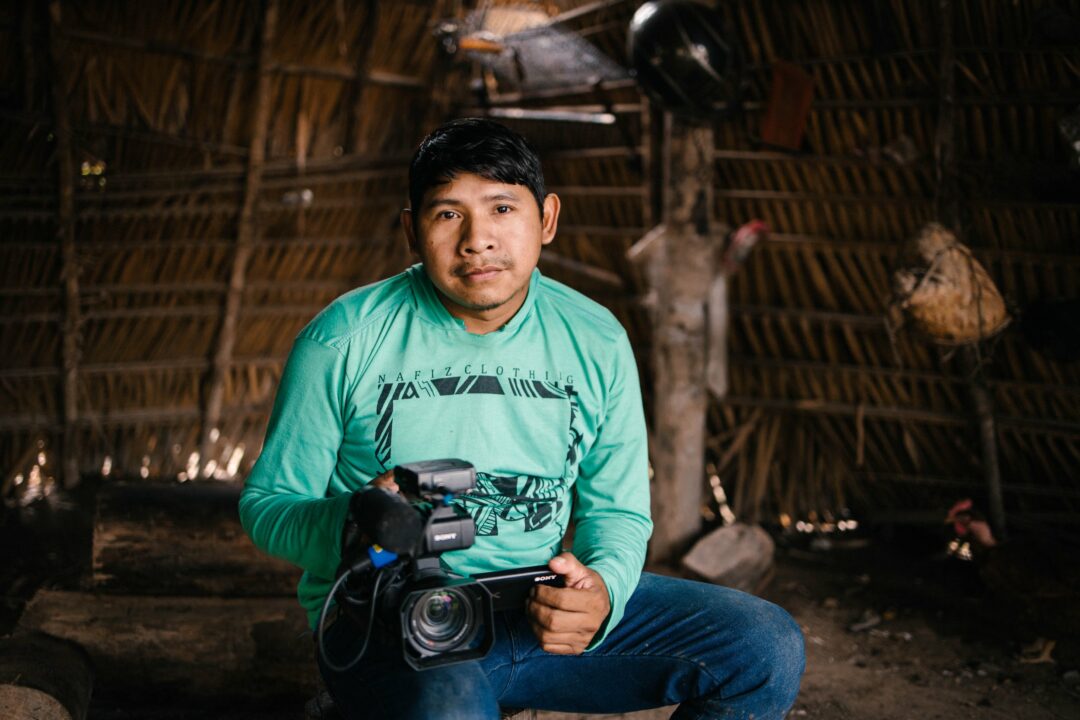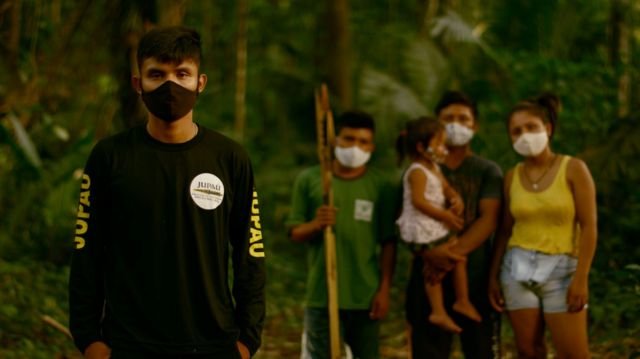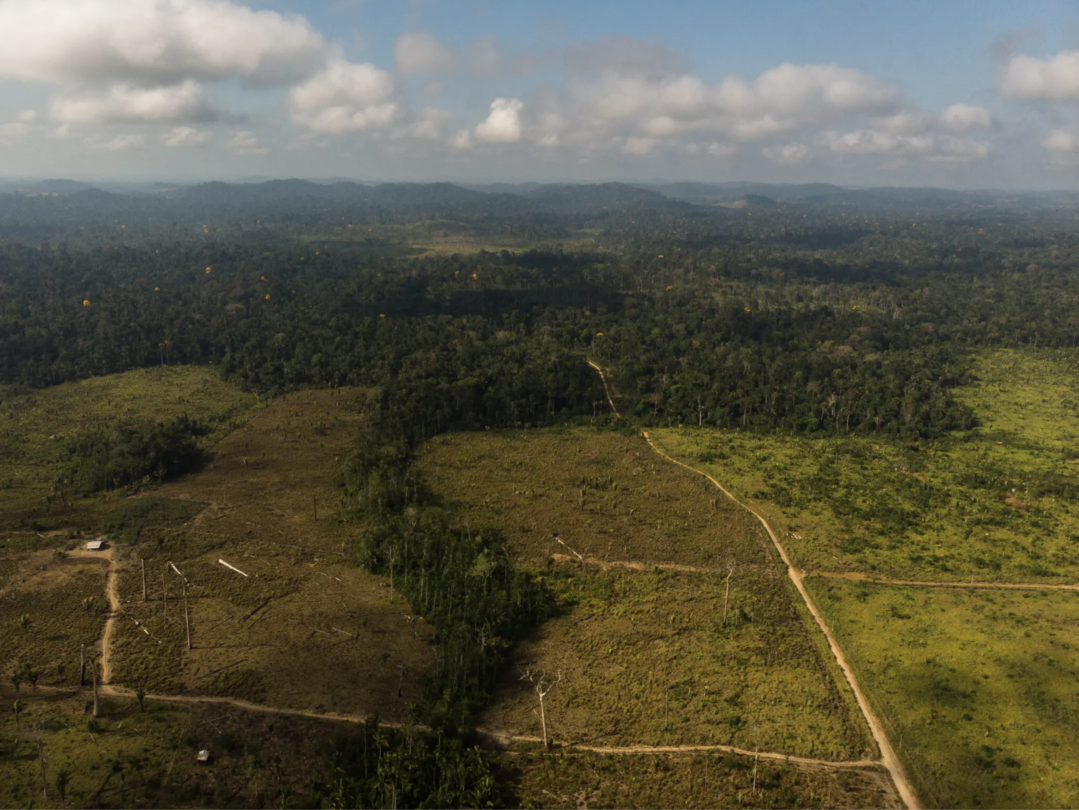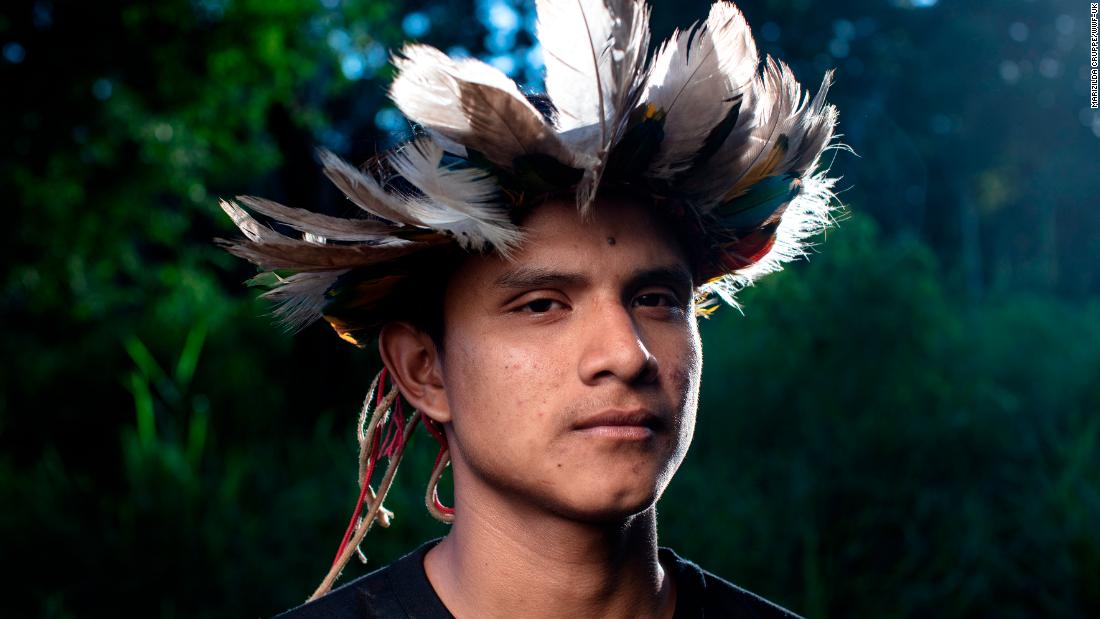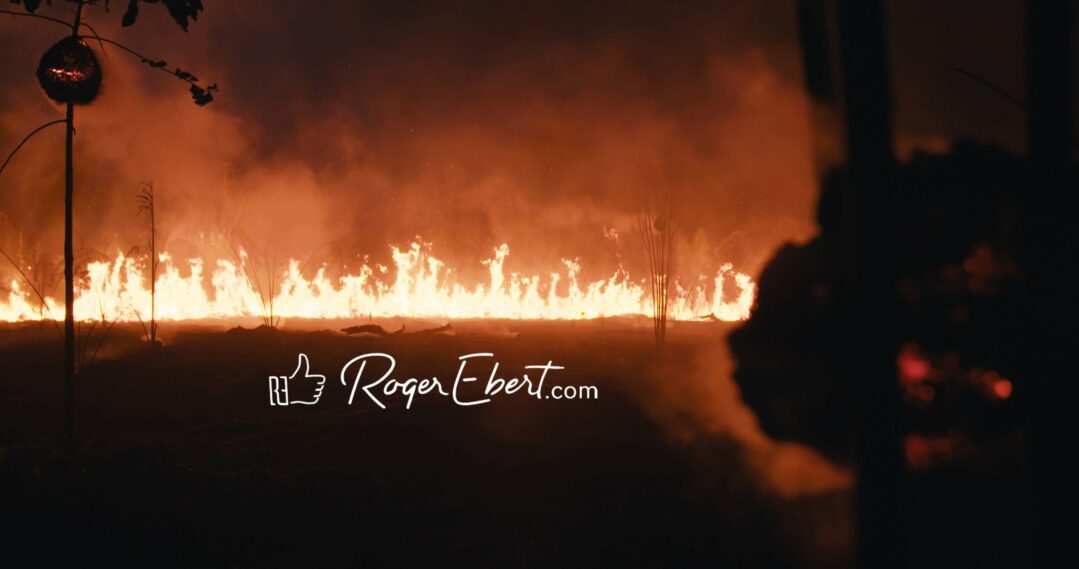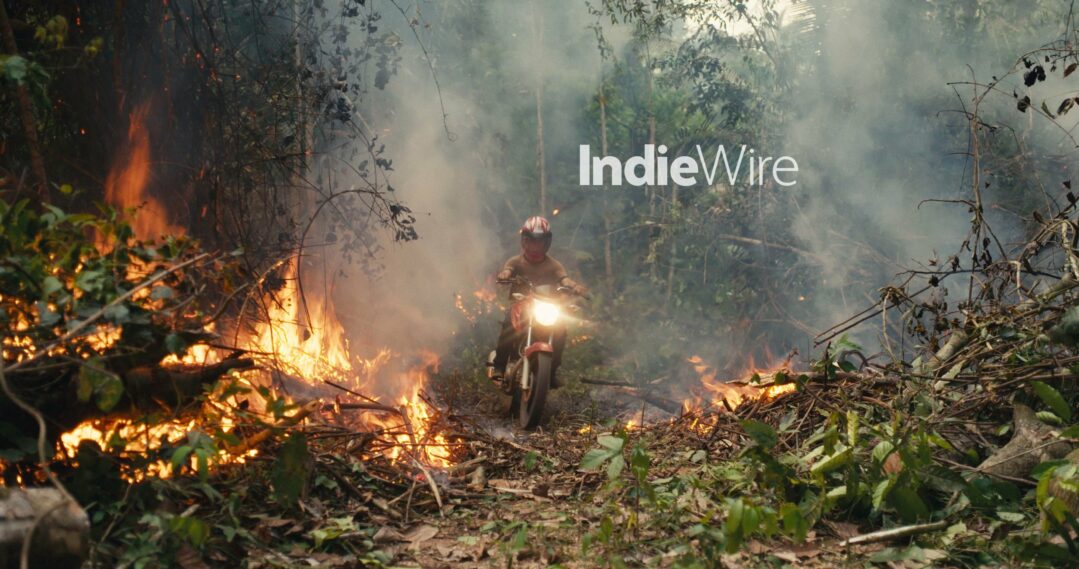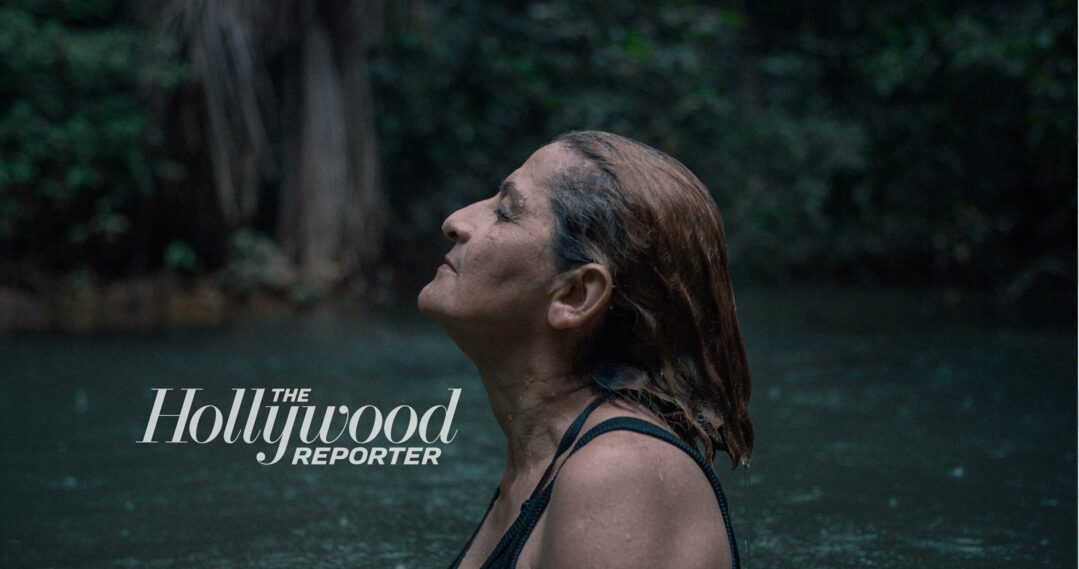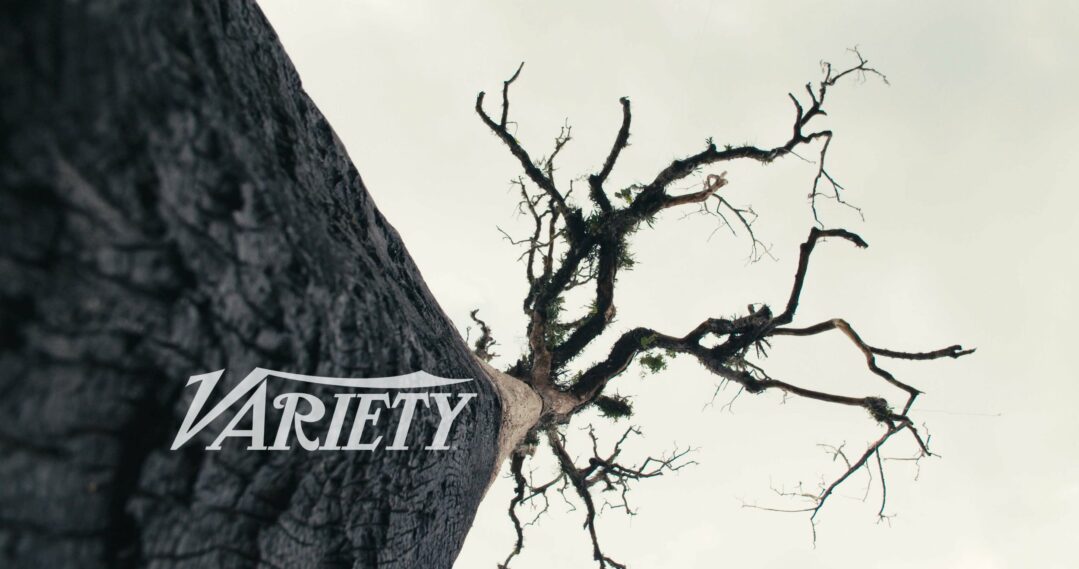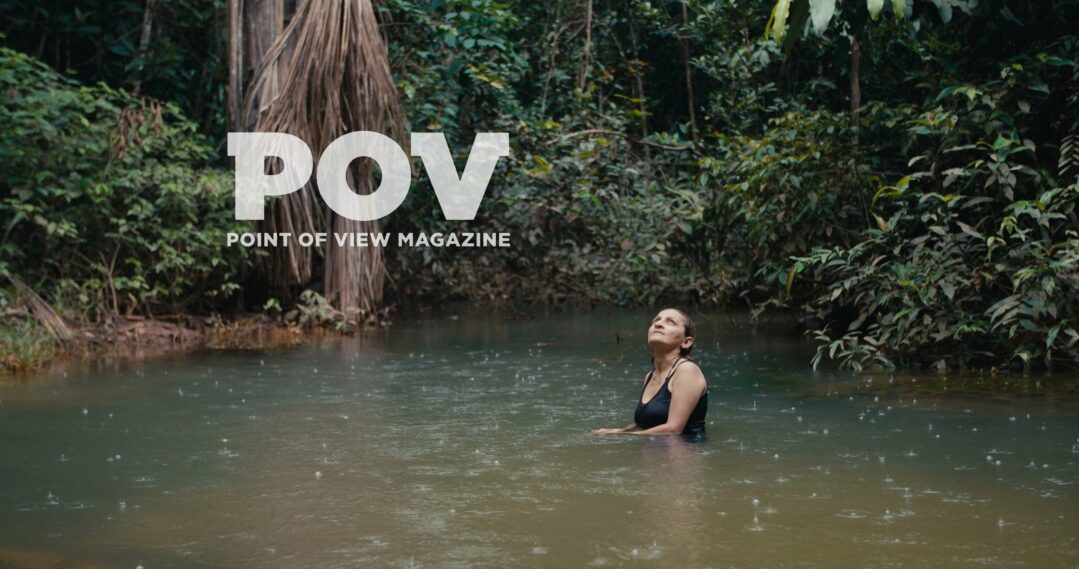






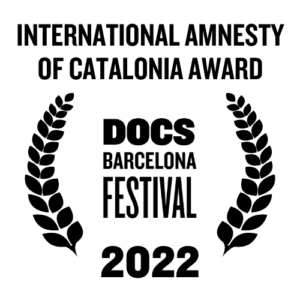
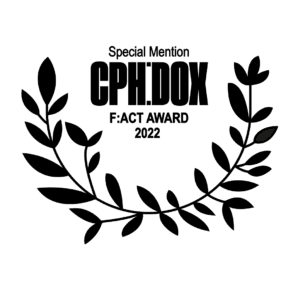
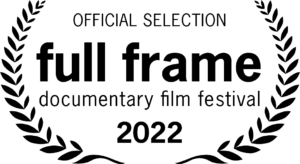



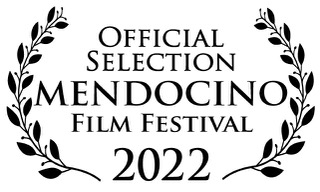
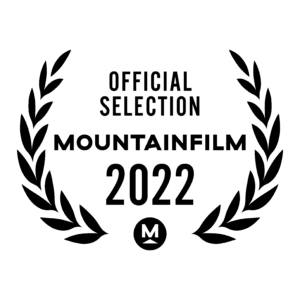
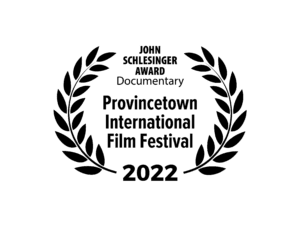


In the News
‘Fire Of Love,’ ‘The Territory,’ ‘All That Breathes’ Lead The Way As Cinema Eye Honors Nominations Announced
The Oscar prospects for Fire of Love, The Territory, and All That Breathes got a significant boost today with the announcement of the nominations for the 16th Annual Cinema Eye Honors.
Sara Dosa’s Fire of Love and Alex Pritz’s The Territory tied with a leading seven nominations apiece, while All That Breathes, from director Shaunak Sen, was recognized in half a dozen categories.
TEAM DEAKINS PODCAST : ALEX PRITZ – Documentarian
This week, Team Deakins is so happy to invite documentary filmmaker Alex Pritz (THE TERRITORY, MY DEAR KYRGYSTAN) to join us for a wide ranging conversation. Alex explains to us how his background in science spurred him into filmmaking, and still drives the larger questions his films attempt to ask. We also discuss the moral issues raised by documenting real life events – and perhaps more importantly, real people. And then we get into the importance of being 100 percent honest in grappling with those issues.
IDA Documentary Awards Shortlists Announced: ‘Fire Of Love,’ ‘The Territory,’ ‘All That Breathes’, ‘All The Beauty And The Bloodshed’ Gain Traction
A handful of awards season frontrunners is starting to emerge with the announcement today of the IDA Documentary Awards Shortlists.
The Territory Director Alex Pritz on Local Conflicts, Narrative Control, and Ethical Choices
When watching documentarian Alex Pritz’s The Territory, the conflict becomes all-consuming. The Uru-eu-wau-wau, less than 200 of them, become the clear heroes. The settlers and farmers, all of which are attempting to seize Indigenous land to make it their own, become the natural villains, despite their own struggles. Pritz stands behind the camera, shooting each side of the conflict, giving air time to those that protect and light this small section of the Amazon rainforest, allowing viewers to make their own judgments.
Brazil’s Uru-eu-wau-wau document COVID-19 victory with new video
When the Uru-eu-wau-wau were first contacted in 1981, disease and death followed shortly thereafter. With limited antibodies to fight foreign pathogens, infectious diseases like tuberculosis and measles took a disastrous toll. From a vibrant Indigenous community numbering in the thousands in the early 1900s, more than half died.
When the coronavirus epidemic arrived in Brazil in March 2020, the events of the 1980s loomed large in the community’s collective memory.
The Amazon Rain Forest is Nearly Gone
Five decades ago Brazil incentivized millions of its people to colonize the Amazon. Today their logging yards, cattle enclosures and soy farms sit on the fringes of a vanishing forest. Powered by murky sources of capital and rising demand for beef, a violent and corrupt frontier is now pushing into indigenous land, national parks and one of the most preserved parts of the jungle.
146: Alex Pritz on “The Territory” at Sundance
The burning of the Amazon rainforest is a global tragedy. Filmmaker Alex Pritz collaborates with members of the Uru-eu-wau-wau indigenous community to document what’s happening on the ground in The Territory. Premiering at Sundance, the film has been hailed as “riveting” (Variety), “gorgeously and sometimes ingeniously conceived” (Indiewire). Alex describes the making of the film with host Thom Powers.
From the Amazon to Glasgow: An Indigenous activist says, ‘We have no more time.’
The woman in the spotlight was not Greta Thunberg, but Txai Suruí, a 24-year-old Indigenous climate activist from Brazil, making her first appearance on the world stage. On the opening day of the global climate summit in Glasgow, she made an eloquent appeal drawing attention to the devastating deforestation of the Amazon.
“The Earth is speaking,” Ms. Suruí said. “She tells us that we have no more time.”
“COVID Helped Us Discover a New Way to Create This Film” | Alex Pritz, The Territory
The Territory is a film about land conflict on Indigenous territory in the Brazilian Amazon, which has been co-created with the Uru-eu-wau-wau community.
How we can use film to create social change
Films have always been a great medium to inspire or serve as a tool for societal change. They can also make audiences experience different kinds of emotions, expose them to new perspectives, and most importantly they can serve as a medium for filmmakers, producers and communicators to bring more awareness to certain issues or causes, helping to change the hearts and minds of people regarding urgent topics.
Amazon rainforest plots sold via Facebook Marketplace ads
Parts of Brazil’s Amazon rainforest are being illegally sold on Facebook, the BBC has discovered.
The protected areas include national forests and land reserved for indigenous peoples.
The War For The Rainforest
Set aside for an isolated Indigenous group, the Brazilian preserve Ituna-Itatá has now been heavily deforested — a grim illustration of the intractable forces destroying the Amazon.
Amazon tribes are using drones to track deforestation in Brazil
The Uru-Eu-Wau-Wau tribe didn’t have contact with the outside world until the early 1980s. Now, they are one of a number of indigenous communities using drones to find and document illegal logging in their territory in the Brazilian Amazon
Amazon Is Less Able to Recover From Droughts and Logging, Study Finds
The Amazon is losing its ability to recover from disturbances like droughts and land-use changes, scientists reported Monday, adding to concern that the rainforest is approaching a critical threshold beyond which much of it will be replaced by grassland, with vast consequences for biodiversity and climate change.
The scientists said their research did not pinpoint when this threshold, which they described as a tipping point, might be reached.
Film Reviews
How an Indigenous Amazonian Group Worked With Filmmakers to Make The Territory
In the western Brazilian state of Rondônia, deep inside the Amazon, a swath of rainforest spans an area two and a half times the size of Delaware—a rich green oasis surrounded by pale farmland. Fewer than 200 people live here: the Uru-eu-wau-wau Indigenous people, just a fraction of the population of thousands the Brazilian government first made contact with in the 1980s.
The Uru-eu-wau-wau—and their tireless fight against deforestation—are the subjects of the National Geographic documentary The Territory, produced in association with TIME Studios, which releases in theaters on Friday.
In a besieged Amazon, people take up cameras to save their land
Forty years ago, Brazilian officials made first contact with a tribe of Indigenous warriors called the Uru-Eu-Wau-Wau in the rain forests of the western state of Rondônia. The contact was the culmination of a years-long pacification campaign by FUNAI, Brazil’s Indigenous affairs agency, to lure the tribe from the jungle with gifts, such as knives, axes, cloth, and mirrors.
The ramifications of that contact, and the tribe’s resolve to defend its land and traditions, is now the subject of a powerful new documentary, The Territory, released by National Geographic Documentary Films in select theaters on August 19.
‘The Territory’ Film Review: Amazonian Eco-Warriors Fight Back With Arrows — and Cameras
Engines roar, blades are sharpened, recoil starters sputter and whine. The opening of Alex Pritz’s Sundance-winning documentary “The Territory” prepares the audience for a real “Chainsaw Massacre,” one that plays out in the Amazon rainforest. But this film is far more terrifying, and galvanizing, than Tobe Hooper’s ‘70s slasher classic.
‘The Territory’ – cinematic hope in tragedy
The film begins in 2018, with an Indigenous community’s struggle to protect what Pritz calls their “island of rainforest surrounded by farms.”
“In the 1980s,” reads an opening title, “the Brazilian government first contacted the Uru-eu-wau-wau people. From a population of thousands fewer than 200 remain.”
Bitaté, a clear-eyed teen activist, is among them, swimming in a tributary, romping with other kids, and working with Neidinha, a middle-aged non-Indigenous activist he refers to as a second mother, to combat a national government that seems hellbent on destroying his home.
‘The Territory’ Review: A Revelatory and Immersive Documentary About the Ongoing Crisis in the Amazon
Documentaries that set out to tackle complex subjects and narratives in a single feature can be tricky to pull off. While there is often a necessity to condense potentially decades of context to fit within a bounded runtime, history is much broader and more expansive than that. What makes The Territory such a stunning and standout work is that it never loses sight of this history that is inexorably intertwined with those living with its repercussions now. A debut feature from director Alex Pritz that won multiple awards at the Sundance Film Festival, it is now getting a release from National Geographic in a moment where it remains as painfully and profoundly relevant as ever. It centers on the Uru-eu-wau-wau Indigenous people and the precarity they face in modern-day Brazil, where the Amazon they have lived in for generations is being decimated. Making matters worse was the election of the far-right nationalist Jair Bolsonaro who has eroded protections for the land and the people that are still living in it.
The Territory Review: An Eye-Opening Look at a Fight Against Deforestation
An opening text scroll in director Alex Pritz’s documentary The Territory recounts that Brazil’s Uru-eu-wau-wau people were first contacted by the country’s government in the 1980s. A bit over three decades later, as we glean from the film’s embedded point of view on their lives, these native Amazonians have adopted some of the accoutrements of modernity. They ride motorcycles, wear soccer jerseys, and use smartphones to follow Brazil’s 2018 general election, the latter of which resulted in an ongoing disaster for their people following the victory of far-right nationalist Jair Bolsonaro.
Essential Environmental Doc The Territory Platforms the Plight of Indigenous Brazilians
The violent claw of colonization continues to raze Indigenous land well into the 21st century, a point made startlingly clear in Alex Pritz’s urgent documentary The Territory. Though the fight against climate change and genocide has been a lifelong effort amid various Indigenous groups around the globe, this lean, visually striking film focuses on the the Uru-Eu-Wau-Wau people, living in a verdant expanse in the Brazilian Amazon that sees its once vast perimeter shrinking exponentially each day.
‘The Territory’ Review: Saving the Amazon, One Camera at a Time
“Save the rainforest” has been a constant refrain among environmentalist groups for the past half-century, but no recent film captures the immediacy of the threat better than “The Territory,” Alex Pritz’s documentary feature debut, which had its premiere earlier this year at Sundance.
National Geographic Documentary Films acquired the rights to the movie after it screened, and given the distributor’s current interest in gripping thrillers (“Free Solo,” “Fire of Love”), it’s no surprise that this feature, covering the embittered conflict between Brazilian cattle ranchers and an Indigenous group in the Amazon rainforest, fits right into its lineup. But “The Territory” is more than meets the eye, revealing its most profound observations in stages across its running time. The film’s luscious cinematography captures the sun-dappled island of jungle where the Uru Eu Wau Wau reside, a land slowly being consumed by flames as farmers and other settlers illegally raze the forest for pastures, with few repercussions.
Sundance 2022: the territory
Every once in a while, a film comes along that simultaneously elevates your anger and evaporates your hope, while pulling you to believe, against all logic, that maybe, if the right people win, the inevitability of our species’ bleak end can still be blotted out. Alex Pritz’s urgent, visually spellbinding plea, “The Territory,” surveying the fight being waged by invading land grabbers and the tiny Indigenous Uru-Eu-Wau-Wau tribe in Brazil, rises to those heights.
‘The Territory’ Review: Intense Doc Cedes Narrative Control to Its Indigenous Subjects
In Alex Pritz’s “The Territory” — a documentary made in close collaboration with Brazil’s dwindling Uru-eu-wau-wau tribe — the moving image is truth, truth is power, and picking up a camera is an act of reclamation. Set at the explosive intersection of technology, politics, and indigenous persecution, the film is gorgeously and sometimes ingeniously conceived, painting an intimate first-hand portrait of joy, pain, and community, before bursting with rip-roaring intensity as it captures a high-stakes struggle for survival unfolding in the moment. More than just a chronicle of events, however, it’s also a bold statement about the lens through which indigenous peoples are often brought to the silver screen.
‘The Territory’: Film Review | Sundance 2022
Focusing on what the filmmakers call “an island of rainforest surrounded by farms,” The Territory is a striking first feature for cinematographer Alex Pritz, as well as a notable collaborative work. Its producers include Darren Aronofsky, and its subjects, the Indigenous Uru-eu-wau-wau people of Brazil, helped make the film.
‘The Territory’ Review: Indigenous Brazilians Stand Their Ground in an Urgent Environmental Docu-Thriller
Dual forces of climate change and cultural genocide overlap to devastating effect in “The Territory,” threatening not just a native community but a wider ecosystem — and cheered on by the actively hostile powers that be. Riveting and despairing in equal measure, freshman director Alex Pritz’s documentary immerses us over the course of three years in the lives, livelihoods and dwindling homeland of the Indigenous Uru-eu-wau-wau people, whose supposedly protected patch of Amazon rainforest is under attack from all sides by farmers, miners and settlers who think nothing of deforesting swaths of jungle that don’t belong to them.
The Territory Review: Thrilling Activist Filmmaking
The Territory is fearless filmmaking. A runaway hit at this year’s Sundance Film Festival, the film is a gripping environmental saga. It’s a thrilling feat that sees art and activism collide. Moreover, this film should be studied as an example of engaged collaborative filmmaking. The hard work and risks taken are evident, and they pay fair dividends in this urgent eco thriller about the Uru-eu-wau-wau tribe’s fight to save the Amazon, a way of life, and the fragile centre of the world’s ecosystem.


